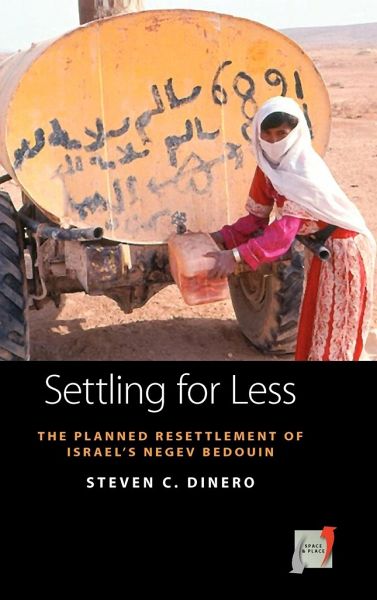Nicht lieferbar

Settling for Less
The Planned Resettlement of Israel's Negev Bedouin
Versandkostenfrei!
Nicht lieferbar
The resettlement of the Negev Bedouin (Israel) has been wrought with controversy since its inception in the 1960s. Presenting evidence from a two-decade period, the author addresses how the changes that took place over the past sixty to seventy years have served the needs and interests of the State rather than those of Bedouin community at large. While town living fostered improvements in social and economic development, numerous unintended consequences jeopardized the success of this planning initiative. As a result, the Bedouin community endured excessive hardship and rapid change, abandonin...
The resettlement of the Negev Bedouin (Israel) has been wrought with controversy since its inception in the 1960s. Presenting evidence from a two-decade period, the author addresses how the changes that took place over the past sixty to seventy years have served the needs and interests of the State rather than those of Bedouin community at large. While town living fostered improvements in social and economic development, numerous unintended consequences jeopardized the success of this planning initiative. As a result, the Bedouin community endured excessive hardship and rapid change, abandoning its nomadic lifestyle and traditions in response to the economic, political, and social pressure from the State-and received very little in return.













